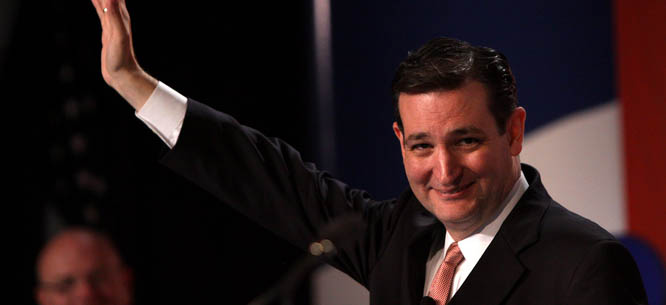If There’s a “New New Left,” Why Isn’t It Protesting the Shutdown?
If There’s a “New New Left,” Why Isn’t It Protesting the Shutdown?

Is a new, young left really on the rise? A few weeks ago, Peter Beinart wrote a long online essay which argued strongly in the affirmative. It drew a lot of attention—20,000 “likes” and almost 5,000 tweets, at last count. And it made a lot of the progressives who read it feel better about politics than at any time since Mitt Romney learned 47 percent was actually the percentage of his popular vote.
Beinart cobbled together an impressive set of poll results to show that Millennials (Americans under thirty) swing left on a broad range of issues—from such obvious ones as same-sex marriage, immigration reform, and military intervention abroad to more surprising ones, like favoring labor unions and preferring a bigger welfare state to a smaller and cheaper version. They also embrace the message of Occupy and even prefer socialism to capitalism, although no pollster seems to have asked them to define those famously slippery terms.
Given their views, large numbers of Millennials should be protesting vigorously as the House GOP holds the state and the economy hostage to an agenda straight out of a Rush Limbaugh show. They should be surrounding the Capitol to defend Obamacare and blast the Republicans for denying food stamps to millions of poor people. They should be clogging the phone lines to Congress to announce a grand mobilization to overturn the GOP majority in 2014. It’s our government, they ought to declare. Boehner, Cantor, and their band of militants have no right to bankrupt or shut it down.
Alas, the only Americans who seem upset enough to organize, at least in large enough numbers for the media to notice, belong to the Tea Party—most of whose zealots are old enough to have voted for Ronald Reagan. Where’s that new left when we need it?
Like many pundits, Beinart assumes that decisive shifts in public opinion will result in changes in national policy. He predicts that whomever wins the Democratic nomination in 2016 will have to embrace “youthful, anti-corporate passion” if she or he hopes to win the White House. However, a movement and those politicians who support it need to mobilize the people who share those opinions or their opponents can win the day. A majority of Americans actually hold a positive view of labor unions. But that hasn’t stopped big employers like Wal-Mart and their GOP enablers from blocking attempts to organize workers and increase the minimum wage.
The inertia of progressives—young or old—isn’t hard to explain. Few are enthusiastic about the Affordable Care Act. The deals needed to pass it, the lack of a public option, and the High Court’s decision to let individual states refuse to expand Medicaid all dilute the moral vision of universal health care the left promoted for nearly a century. And Barack Obama has done a poor job explaining why most Americans will benefit from the law. My wife has an “I Love Obamacare” bumper sticker on her car. Even where we live, in a super-liberal Maryland suburb just a mile from the DC line, I rarely see another one.
Despite what the polls say, Americans on the left also harbor a deep cynicism toward the federal state. While their mistrust is directed at campaigns funded by the rich and the military and security establishment rather than entitlements, it still leads them to balk at efforts to champion a government and an administration that fail to live up to their liberal promises.
Ironically, the only time in recent years that progressives did manage to organize something resembling a mass movement was when they helped elect Barack Obama in 2008. Not since Franklin D. Roosevelt’s landslide re-election in 1936 had left and liberal activists united, with enthusiasm, to work in a victorious presidential campaign. But a run for the White House is not the same as a popular insurgency, and a president cannot be the leader of a movement.
The Occupy camps did appear during the fall of 2011 to have the potential to develop into something bigger and more durable. They made economic inequality the issue of the day, and, a year later, its prominence probably helped elect populist Democrats like Elizabeth Warren and Sherrod Brown who had long sung the same tune. But, in retrospect, the Occupiers, most of whom were Millennials, mistook a brilliant tactic—a youth festival with politics instead of rock music—for a clever long-term strategy. When their tents came down, voluntarily or forcefully, they had no second act to play.
So as the Tea Partiers—inside and outside Congress—mobilize with passionate intensity, their counterparts on the left monitor their media and hope for the best. Perhaps Beinart’s sanguine prediction will come to pass a few years from now. But to laugh, anxiously, as Jon Stewart, Stephen Colbert, and Gail Collins eviscerate Ted Cruz and his ilk does nothing to beat back the danger a determined, well-funded mass conservative movement poses now to the imperfect but vital reforms Obama and the Democrats have been able to pass. Don’t fret, organize.
Michael Kazin is the editor of Dissent.




